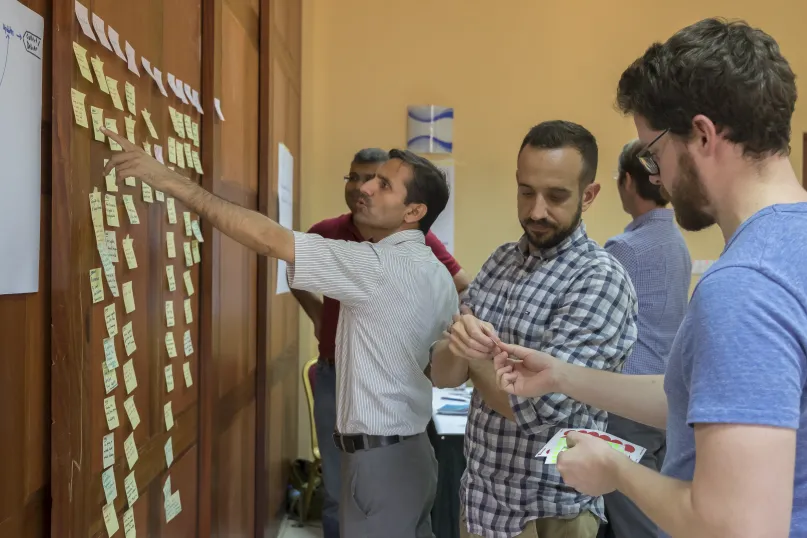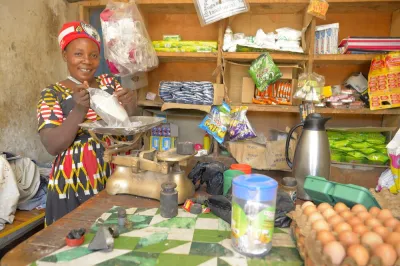How Can We Close the Fintech Innovation Gap?

The uptake in mobile money in developing markets is generating unprecedented opportunities for innovation in digital financial services, products, and business models. Fintech innovation has the potential to propel financial inclusion forward immensely by lowering the costs associated with reaching the mass market with new products and services. However, in developing countries – where these innovations are most needed – it is hard to find fintech startups that are ready for investment, leading to investor frustration and a scarcity of early-stage funding and mentorship for promising ventures.
In Africa, just three countries, South Africa, Nigeria, and Kenya, accounted for over 80% of startup funds secured in 2016, with Kenya and Nigeria especially high in the number of investments. However, even in these two continent-leading startup ecosystems, there are few mass market fintech innovations that are ready for serious investment. Outside of Kenya and Nigeria, the numbers drop off starkly.
What accounts for this dearth of investment-ready startups?
In developing countries, the biggest gap in the ecosystem is at the early stage. Startups at this stage lack the network of experienced angel investors and mentorship culture that nurtures their counterparts in Silicon Valley. While wealthy individuals might try to fill the need, most are not former tech founders but rather made their money in consumer goods, tourism, extractive industries, or other unrelated sectors. They do not always come with the right instincts. Additionally, the terms they demand can sometimes be counter-productive, diluting the founders’ shareholdings beyond what is healthy.
The lack of mentorship at this stage is arguably more critical than the funding itself. Startup ecosystems in developing countries simply have not yet seen a large enough “first generation” of experienced, financially successful entrepreneurs to fill the need for angel investors with first-hand technical and market expertise.
What’s to be done?
Investors who want to increase the quality and quantity of their pipelines will need to engage entrepreneurs earlier than the traditional “demo day,” when a group of startups pitch to an audience of investors through short, polished presentations. We think a hands-on approach will be critical, with investors mentoring promising early-stage teams as early as the concept stage. Incubators have the potential to play a very useful role helping to energize the local ecosystem and build a culture around early-stage mentorship and financial support. However, there are few incubators that can provide experienced support for the niche but growing group of developing-marketing fintech startups.
With that in mind, we set up the DFS Lab to use a hands-on approach to nurture the development of fintech entrepreneurs and accelerate fintech innovation in developing countries. We sit squarely at the stage between bootstrapped and seed funded. The program has three main phases: 1) a one-week co-working bootcamp to validate fintech concepts, 2) a six-month incubation program accompanied by grant investment to prove market traction, and 3) help with securing seed-stage funding to put startups on the path to scale.

We spent most of our early days building out a mentor network of the best fintech leaders we know, prioritizing those with both fintech and startup experience in developing markets. These carefully selected mentors join us from day one of our fintech bootcamps from which we select our portfolio companies from a pool of finalists. We structure our week-long bootcamps around the design sprint methodology, a process created at Google Ventures to help teams go from concept to prototype to early customer validation in just five days. The process allows mentors to work shoulder-to-shoulder with entrepreneurs and get into the details about the issues facing each venture team. For startup teams, the bootcamp helps form the foundation of their own advisory networks.
An example of this dynamic is illustrated with SERV’D, one of DFS Lab’s current portfolio companies. The SERV’D team came to us with a goal to help millions of domestic service workers in India (housemaids, cooks, drivers, etc.) formalize their employment and access financial services. During the bootcamp, the team was paired with a mentor with deep experience in the Indian market who helped them identify a new segment of customers to work with – those serving many households at once (i.e. milk and newspaper delivery services) who value the speed and simplicity with which they can collect payments through the SERV’D platform.
By working so closely with the startup during this early stage, our team reinforced a part of our own thesis: that financial services could be offered on top of new sources of data generated from platforms which provide valuable solutions for previously financially underserved and data-light customers. Additionally, we gained a valuable look into the dynamics of the SERV’D team, how they decide, plan, and execute on new ideas, and where DFS Lab could fit in as a partner. Our confidence in funding SERV’D came directly from our first-hand experience with the founding team.
We believe that a first wave of startup success in developing countries will help fill the mentorship gap. Today however, a gap still exists and entrepreneurs struggle to find the network and advice they need at the early stage. DFS Lab’s bootcamps aim to address that gap, showing that a hands-on approach can be useful for entrepreneurs and investors alike. Moving forward, we hope to see more fintech funders looking to play a more involved role earlier on.
DFS Lab’s next fintech bootcamp will be in Sri Lanka on April 24-29, 2017. You can follow the bootcamp on Twitter and on the DFS Lab website.


